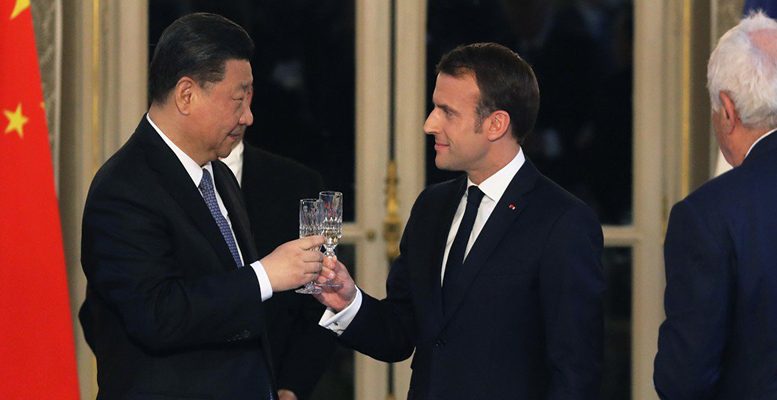Alicia García Herrero (Natixis) | President Xi Jinping’s European tour, his first in five years, has shown how much EU member states, at least those in the core of Europe, need a reality check. Not only has Xi taken quite some time to visit the continent but in doing so he chose to visit his staunchest European allies, Serbia and Hungary, beyond France.
President Emmanuel Macron was an important target for Xi since he has recently taken a much harsher stance on Russia’s war in Ukraine and strongly supports the EU’s strategic autonomy and EU economic security strategies. These latter two initiatives are very much focused on China. On the former, China’s official exchanges with Russia are at a record high. China has repeatedly abstained from United Nations resolutions condemning Russia’s aggression against Ukraine. Meanwhile, Chinese economic and financial support for Russia is not limited to its imports of Russian oil and gas at appealing cut-rate prices. (India has also gorged on Western-sanctioned Russian energy). Most importantly, China is reportedly the main external supplier of everything Russia needs to keep its war machine up and running, from trucks to chips to drones. Such Chinese exports risk being officially classified as “dual-use” or plainly as weapons, as US Secretary of State Antony Blinken warned during his recent trip to Beijing. Macron sent a similar warning to Xi. So far the EU has imposed fines on only three Chinese companies delivering dual-use technology to Russia, compared to a much longer list of companies sanctioned by the US.
On EU economic security, Macron had European Commission President Ursula von der Leyen at his side when he met Xi at the Elysée. She reportedly spelled out the full list of EU concerns with China’s economic model, not least a massive industrial policy oriented to export markets that has created excess capacity. In other words, EU officials seem to have shifted their focus from gaining market access to China for EU companies, after decades of unsuccessful attempts, to protecting the EU market from overcapacity in China.
Xi’s response: China just has a huge comparative advantage arising from innovation and economies of scale, meaning the EU should not expect any appeasing measures. For Macron, though, as many other European leaders feel the solution might come from having Chinese EV makers produce in Europe, which Xi appeared to support on behalf of Chinese companies. The fact that the latest Chinese EV plant agreed to in Spain is coming with EU subsidies surely sweetens the deal. But questions will need to be asked as to where the added value will be produced (as 40% of EVs’ value is in their batteries, which are made mainly in China). More importantly, by establishing factories in the EU, China can avoid the countervailing duties that would be imposed on imported Chinese EVs if the EU’s ongoing anti-subsidy investigation so warrants.
The second leg of Xi’s European tour in Serbia and Hungary will be even more telling for Macron and Von der Leyen. The 25th anniversary of NATO’s bombing of the Chinese Embassy in Belgrade is being played up and more can be expected when Xi meets China-friendly Hungarian Prime Minister Viktor Orban. China’s support for Russia will undoubtedly continue and there is nothing Macron will have achieved with his meeting and warning to Xi. Judging by Xi’s comments, the same is true for what the EU sees as China’s industrial overcapacity. The reality check for Macron will probably come from an eventual “I told you so” from Von der Leyen but for now Xi’s trip has done nothing to quiet the chorus of worries about China’s threat. This puts the EU in a clear bind as it waits ever anxiously for the result of the US election pitting Joe Biden versus Donald Trump in November.





